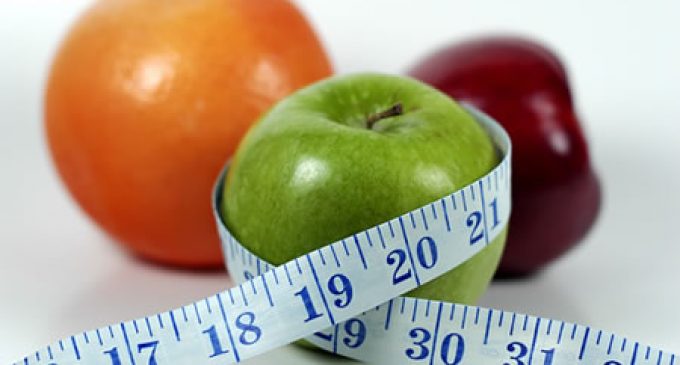Shrinking Sales For Diet Foods in the UK

While the UK may be growing larger as a nation, with one in three (31%) British consumers on a more or less permanent diet, new research from Mintel finds sales of diet and weight control food stagnating. Indeed, according to Mintel, sales of weight control foods having risen by a conservative 10% to £1.6 billion between 2007 and 2012, with the market at a standstill in 2012.
What is more, the number of consumers looking out for light or diet food and drink products has progressively slipped, albeit at a slow rate. Around one in five (19%) Brits use diet food and drink, the number of users having dropped from 21% in 2008, meanwhile, just 5% of Brits use diet products, such as appetite controllers and meal replacements.
Today, the top five ways Brits choose to manage weight are – 1. Exercise more 60%, 2. Eat small portions 55%, 3. Cut back on fatty foods 53%, 4. Cut back on sugary foods and drink 54% and 5. Cut back on desserts 46%. Meanwhile, just three in ten (30%) Brits opt for more diet foods to try to lose weight.
Overall, just over half (52%) of Brits have tried to lose weight in the past year (42% of men versus 63% of women). Almost a fifth (18%) try to maintain their current weight. Almost one in five (17%) sometimes think about their weight but don’t do anything about it, while one in ten (10%) never think about their weight and 3% are trying to put weight on.
Emma Clifford, Senior Food Analyst at Mintel, says: “The troubles of the diet and weight control market cannot be attributed to consumers lacking interest in losing weight, in fact, quite the contrary. The majority of Britons have tried to lose or manage their weight in the last year, and the number of persistent dieters continues to edge up. The turbulent economic landscape, squeezed disposable incomes and low consumer confidence have stifled growth in the market, as financially straightened Britons turned to cheaper methods of weight management, such as eating smaller portions and cutting back on certain types of food.”
When asked about light and low-fat foods, the overriding perception held by three quarters of the population (76%) is that diet products are overpriced. Also presenting a challenge to the market is the widespread scepticism over the health credentials of foods labelled as diet, low fat or low calorie. Indeed, while seven in ten (71%) feel it is difficult to know how healthy these products genuinely are, half (51%) of Britons actively distrust them, driven by concerns which linger over the ingredients or sweeteners they contain.
Competition from products which are naturally lower in calories is a major issue for the market, and almost half (48%) of adults prefer these products over reduced calorie alternatives. The top health claims consumers look for are low fat (52%), part of my five a day (49%), unprocessed 43%, low sugar 43% and low calorie (40%). Almost one in ten (8%) admit they do not buy healthy food.
“Despite rising levels of obesity and the large swathes of the population who are trying to lose weight, the diet and weight control food market is stagnating. Although the overriding perception that ‘light’ products are overpriced is undoubtedly limiting their appeal, consumers’ scepticism over their healthiness is also a major barrier. In order to win consumers’ trust and compete with naturally low-calorie foods it is vital that manufacturers offer consumers greater transparency in terms of their ingredients and what constitutes them being ‘diet.’ continues Emma Clifford.
Within the market, biscuits (which include cereal bars) account for the largest share of the identified diet and weight control food sales, accounting for 31p in every £1 spent on these, and this segment is expected to grow by an impressive 9% in 2012. The diet and weight control yogurt sector has seen sales slip in 2012 to an estimated £334 million related to ramped-up competition from more indulgent yogurts and functional yogurts. The most notable declines are estimated to be witnessed in the chilled and frozen ready meals segments, which are forecast to decline by 17% and 14% year on year respectively.
Overall, the diet and weight control foods market is made up of biscuits (31%), yogurt (21%), yellow fats (13%), breakfast cereal (7%), salad dressings (6%) bread (6%) chilled ready meals (6%), frozen ready meals (4%), artificial sweeteners (4%) and ice cream (2%). Looking at dieting schemes used by Brits, the top three schemes are – 1. Keeping a food diary (13%), 2. Using diet apps (10%) and 3. Joining diet clubs or programmes (7%).
“It is likely that more diet apps will continue to flood onto the market, and the popularity of these will grow. Consumers are becoming more data-driven and consumers are increasingly turning to technology to build ‘personal dashboards’. These can lend consumers a sense of control over the many facets of their busy lives, with the ultimate aim of self-betterment,” Emma Clifford concludes.

































